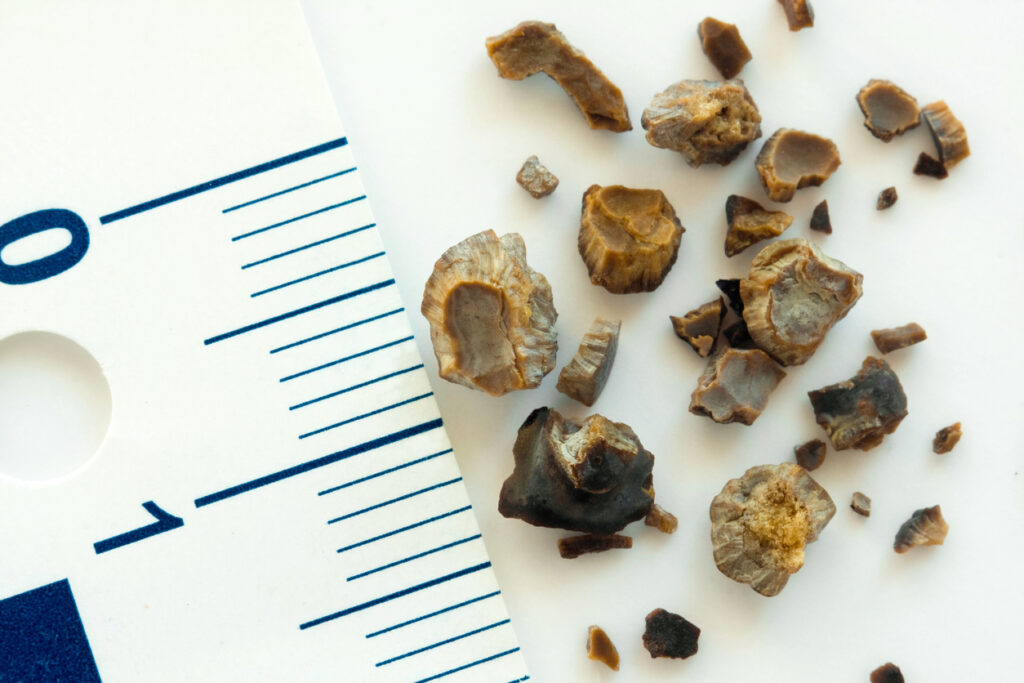Introduction
Passing a kidney stone can be an intense and painful ordeal. While many people believe the problem ends once the stone has passed, the reality is that kidney stones often recur. In fact, studies show that nearly 50% of people who have had one kidney stone will experience another within 5-10 years if no preventive measures are taken. The good news is that there are effective long-term strategies you can adopt after your first stone to reduce the risk of recurrence. This article explores these strategies, covering lifestyle changes, dietary recommendations, medical treatments, and monitoring to help you maintain kidney health.
Why Do Kidney Stones Recur?
Kidney stones form when urine contains high levels of stone-forming substances like calcium, oxalate, and uric acid, or when protective factors like citrate are low. Without addressing the underlying causes or lifestyle factors, these imbalances persist, making new stones likely to form.
1. Hydration: The Cornerstone of Prevention
- Drink plenty of fluids: Aim to produce at least 2.5 liters of urine per day. This usually means drinking about 3 liters (about 100 ounces) of water daily.
- Consistent hydration: Spread fluid intake throughout the day and evening. Avoid dehydration from exercise, hot weather, or illness.
- Include citrate-rich beverages: Lemonade made with fresh lemon juice can help raise urinary citrate, a natural inhibitor of stones.
2. Dietary Changes Based on Stone Type
Tailor your diet depending on your stone’s composition, as identified by stone analysis or 24-hour urine testing.
Calcium Oxalate Stones
- Moderate oxalate-rich foods: spinach, nuts, beets, tea, chocolate.
- Ensure adequate dietary calcium: 1,000–1,200 mg/day from food.
- Reduce sodium intake to under 2,300 mg/day.
- Limit animal protein consumption.
Uric Acid Stones
- Limit purine-rich foods: red meat, organ meats, shellfish.
- Reduce alcohol, especially beer.
- Maintain a diet rich in fruits and vegetables to alkalinize urine.
Struvite Stones
- Prevent urinary tract infections with good hygiene.
- Treat infections promptly and completely.
Cystine Stones
- Drink large volumes of water (over 3 liters daily).
- Limit sodium and moderate protein intake.
3. Medical Therapies
Your healthcare provider may recommend medications based on your stone type and urinary findings:
- Thiazide diuretics: Reduce calcium excretion in urine.
- Potassium citrate: Raises urine citrate and alkalinizes urine.
- Allopurinol: Lowers uric acid levels for uric acid stones.
- Antibiotics: To prevent infections in struvite stone formers.
4. Lifestyle Modifications
- Maintain a healthy weight: Obesity increases stone risk.
- Exercise regularly: Improves overall kidney and metabolic health.
- Avoid excessive vitamin C and D supplements: They can increase stone risk.
- Limit excessive intake of soda and sugary drinks: These may increase stone formation.
5. Regular Monitoring and Follow-Up
- 24-hour urine tests: Assess risk factors and monitor treatment effectiveness.
- Imaging: Periodic ultrasounds or CT scans to detect new stones early.
- Stone analysis: If you pass a stone, have it analyzed to guide prevention.
6. When to Consult a Specialist
If you have recurrent stones, large stones, or a family history of stones, consider seeing a nephrologist or urologist specializing in kidney stone prevention.
Conclusion
Preventing recurrent kidney stones is possible with a proactive approach combining hydration, diet, medication, and lifestyle changes. By understanding your specific risk factors and working closely with your healthcare provider, you can significantly reduce the chance of future stones and protect your kidney health. Start your prevention journey today to avoid the pain and disruption of another stone episode.
FAQs:
How much water should I drink daily to prevent stones?
Aim for about 3 liters (100 ounces) to produce enough urine to flush out minerals.
Can diet reduce my risk of new stones?
Yes, tailored dietary changes based on your stone type significantly help.
Are there medications to prevent kidney stones?
Yes, doctors may prescribe medications like thiazides or potassium citrate, depending on your stone type.
How often should I get checked after my first stone?
Regular follow-up with urine tests and imaging every 6–12 months is common.
Is weight management important for stone prevention?
Absolutely. Maintaining a healthy weight lowers your risk of stones and other health issues.






